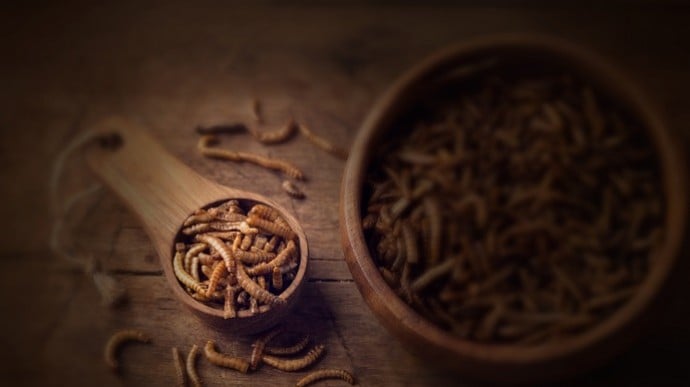Fruit flies are a major threat to fruit production because infested fruit cannot be sold and production costs increase due to costly management techniques, resulting in increased fruit prices. Countries that do not have fruit flies are also less likely to import fruit from countries with fruit flies for fear of importing these insects along with the fruit. Preventing fruit from being infested so that it can be exported remains an important challenge to fruit farmers.
South Africa is home to a number of species of fruit fly, three of which - the Mediterranean fruit fly (med-fly); the marula fruit fly; and the Natal fruit fly - are of economic significance owing to their ability to disrupt fruit production and cause export restrictions. It is estimated that crop losses and pest control costs resulting from fruit flies amount to more than R20 million per year in the Western Cape alone.
Dr Chris Weldon, of the Department of Zoology and Entomology at the University of Pretoria (UP), is researching the prevalence of fruit flies and how certain species are able to tolerate certain weather conditions better than others, particularly hot, dry temperatures resulting from climate change. His study looks at how med-flies specifically have adapted, by doing a comparative study of the three indigenous South African flies. As a result of the fruit trade, the med-fly has the widest distribution of any fruit fly in the world and has successfully established themselves in various climates.
Fruit flies lay their eggs in specific types of fruit. The commercially grown fruits that are most affected by these flies include citrus and deciduous fruit. The med-fly has a much wider host range than the other two South African fruit flies, which has contributed to its vast distribution range.
Med-flies are proving to be desiccation tolerant, meaning that they are able to endure extremely dry weather conditions. It seems that as long as there is some source of water, the med-fly can survive. Dr Weldon's research found an interesting reason for the med-fly's ability to tolerate dry conditions: It is able to break down its stored body fat and metabolise it, thus releasing water. To date, he has not been able to find this phenomenon in the other two species. He hopes to extend this research to look at the pathways by which insects lose water and how South African fruit flies differ in this regard.
Dr Weldon notes that although South Africa's current control strategies are working well, in view of the insects' remarkable ability to adapt to changes in the environment, it is important to constantly improve on control systems.
See related photos in gallery on the right sidebar.
South Africa is home to a number of species of fruit fly, three of which are of economic significance owing to their ability to disrupt fruit production and cause export restrictions. The three species regarded as being disruptive to fruit production are the Mediterranean fruit fly, or the med-fly (Ceratitis capitata); the marula fruit fly (Ceratitis cosyra); and the Natal fruit fly (Ceratitis rosa). It is estimated that crop losses and pest control costs resulting from fruit flies amount to more than R20 million per year in the Western Cape alone.
As a result of the fruit trade, the med-fly has the widest distribution of any fruit fly in the world. They have successfully established themselves in various climates, from areas like the Western Cape, which has a typically Mediterranean climate, to tropical regions in Eastern Africa, across sub-Saharan Africa and beyond to the northern deserts. Med-flies are proving to be desiccation tolerant, meaning that they are able to endure extremely dry weather conditions. It seems that as long as there is some source of water, the med-fly can survive.
Research shows that climate change is affecting these pests' distribution – and not in a favourable way. Dr Chris Weldon, of the Department of Zoology and Entomology at the University of Pretoria (UP), is researching the prevalence of fruit flies and how certain species are able to tolerate certain weather conditions better than others, particularly hot, dry temperatures resulting from climate change. Aiming to better understand how these flies are able to withstand such conditions, Dr Weldon's study looks at how med-flies have adapted, doing a comparative study of the three indigenous South African flies.
Fruit flies lay their eggs in specific types of fruit. The commercially grown fruits that are most affected by these flies include citrus and deciduous fruit. The med-fly has a much wider host range than the other two South African fruit flies, which has contributed to its vast distribution range. It is said that its host range spans more than 300 different fruit species. Interestingly, Dr Weldon found the marula fly to be just as desiccation-tolerant as the med-fly; however, it is much more particular in its host fruit, laying its eggs mostly in the marula fruit and mangoes. The marula fly's distribution is therefore limited by its host range rather than its ability to withstand dry conditions. The Natal fruit fly has the most restricted distribution range, preferring wetter conditions and having very limited tolerance to dry conditions.
Dr Weldon's research found an interesting reason for the med-fly's ability to tolerate dry conditions: It is able to break down its stored body fat and metabolise it, thus releasing water. Dr Weldon suspects that the flies use the water released in this way to help them handle dry conditions and survive for longer periods without access to other sources of water. To date, he has not been able to find this phenomenon in the other two species.
Dr Weldon also found that the med-fly is able to withstand more water loss relative to its body size compared to other species. He hopes to extend this research to look at the pathways by which insects lose water and how South African fruit flies differ in this regard.
Research like that done by Dr Weldon is hugely important as fruit flies can cause major financial losses. Fruit flies are a major threat to fruit production because infested fruit cannot be sold. Production costs increase because management techniques are costly, resulting in increased fruit prices. Countries that do not have fruit flies are less likely to import fruit from countries where fruit flies are present for fear of importing fruit flies along with the fruit. Preventing fruit from being infested so that it can be exported remains an important challenge to fruit farmers.
There are several ways of controlling fruit flies, but in South Africa the main methods used are bait spraying, the male annihilation technique and the sterile insect technique. Dr Weldon notes that South Africa's control strategies are working well, which makes South Africa's fruit production quite efficient. However, in view of the insects' remarkable ability to adapt to changes in the environment, it is important to constantly improve on control systems.
A new fruit fly was recently discovered to occur in South Africa, namely the Oriental fruit fly (Bactrocera dorsalis). This fly, which was first detected in Kenya, has spread through most of sub-Saharan Africa and is now also found in the northern parts of South Africa. Its presence is particularly troubling because it targets fruit as well as vegetables. Dr Weldon's research group, FliES (Flies of Economic Significance Research Group), has started researching Bactrocera dorsalis to arrive at a better understanding of its dispersal and the susceptibility of local commercially produced fruits. Of major concern to him is the fact that, as the effects of climate change become more pronounced, more flies may spread to new areas of fruit production. http://www.fruitfly.co.za/faq/
See related photos in gallery on the right sidebar.
Prof Chris Weldon
May 13, 2016

 Story
Story
Cricket à la king? How about a yellow mealworm burger? Foods that may previously have evoked a ‘yuck’ response are now firmly on the menu. Research into edible insects by the Department of Zoology and Entomology at the University of Pretoria (UP) is exploring how to rear and harvest this food of the future.
 Story
Story
Generative artificial intelligence (GenAI) is changing how we work, play and relax. Whether you use ChatGPT to write a brief, Midjourney to generate visuals or MuseNet to create unique soundtracks, these technologies have opened up opportunities for richer content.
 Story
Story
A single query to ChatGPT uses as much electricity as burning a light bulb for about 20 minutes. Multiply that by the millions of requests that this artificial intelligence (AI) chatbot receives each day, and the environmental impact is ominous.
Copyright © University of Pretoria 2025. All rights reserved.
Get Social With Us
Download the UP Mobile App